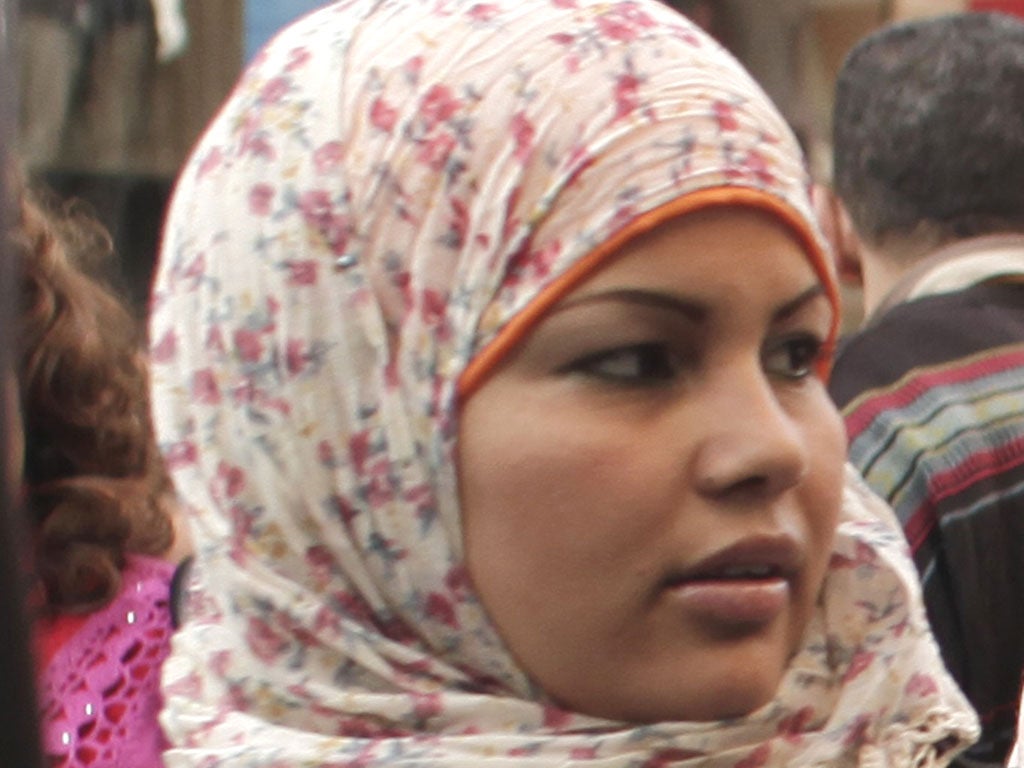Military clears army doctor over 'virginity test' on Cairo protesters
Acquittal raises questions over ruling military council's attitude to human rights abuses

An Egyptian army doctor, who was the only person to stand trial accused of forcing female protesters to undergo "virginity tests" after demonstrations last year, has been cleared. The verdict outraged activists who say it shows the military council has no intention of prosecuting people accused of committing abuses during its rule.
Samira Ibrahim, 25, fought a lonely battle against the military rulers after alleging that she and six other women were forced to strip naked and undergo an inspection to "test their virginity" after being arrested during a demonstration in March last year, just weeks after President Hosni Mubarak was toppled. Yesterday a military court acquitted the only defendant – Dr Ahmed Adel, who had been accused of public indecency. Judges cited differing witness statements, and denied that any such tests had ever been carried out.
This was despite a previous court ruling in December which established that such inspections had indeed existed. Top generals had also admitted to both the media and Amnesty International that the tests had taken place.
Following the case's collapse, Ms Ibrahim took to Twitter and vowed to continue her fight. "No one stained my honour," she wrote. "The one that had her honour stained is Egypt. I will carry on until I restore Egypt's rights."
The verdict brought widespread condemnation from human rights groups, who accused Egypt's rulers of exploiting the widely derided military court system to conduct a legal whitewash. "This was not an independent judicial body reviewing the conduct of a law enforcement official," said Heba Morayef from Human Rights Watch (HRW), a witness who gave evidence during the trial. "The military will obviously protect its own." Amnesty International called the verdict a "travesty of justice" and said in a statement that it was "further proof that the country's military courts are incapable of dealing with cases involving human rights abuses".
The accusations of degrading treatment of women come amid a slew of incidents which have soured the euphoria of last year's uprising, including alleged abuses of power by Egypt's military, the torture of detainees and the trial of up to 15,000 civilians in military courts.
The "virginity test" accusations surfaced after Ms Ibrahim and 20 other women were arrested during a rally in Tahrir Square last year. The protesters were demanding swifter reform after the military seized power following massive protests demanding an end to Mubarak's three-decade rule.
The women were initially detained in the grounds of the nearby Egyptian Museum, but were later transferred to Cairo's infamous C28 military detention facility along with dozens of male activists. It was here that, according to the women, the virginity testing occurred.
Ms Ibrahim, who was the only one of the seven women to file a case against the military, gave a testimony to HRW describing her alleged ordeal.
"They took us out one by one," she said. "When it was my turn, they took me to a bed in a passageway in front of the cell. There were lots of soldiers and they could see me. A woman prison guard in plain clothes stood at my head and then a man in military uniform examined me with his hand for several minutes. It was painful. He took his time. It was clear he was doing it on purpose to humiliate me."
The women were tried in a military court and then given one year suspended sentences. But defying military orders not to speak publicly about what happened to her, Ms Ibrahim fought back against her tormentors.
Risking the opprobrium of the authorities – but, arguably more worrying, the judgement of conservative Egyptian society – she appeared in a video which detailed the incident and was uploaded on to YouTube.
In contrast to the other victims – one of whom was shunned by her family – Ms Ibrahim was given the full backing of her family, in particular her father.
But yesterday's acquittal appeared to be a significant setback.
Join our commenting forum
Join thought-provoking conversations, follow other Independent readers and see their replies
Comments